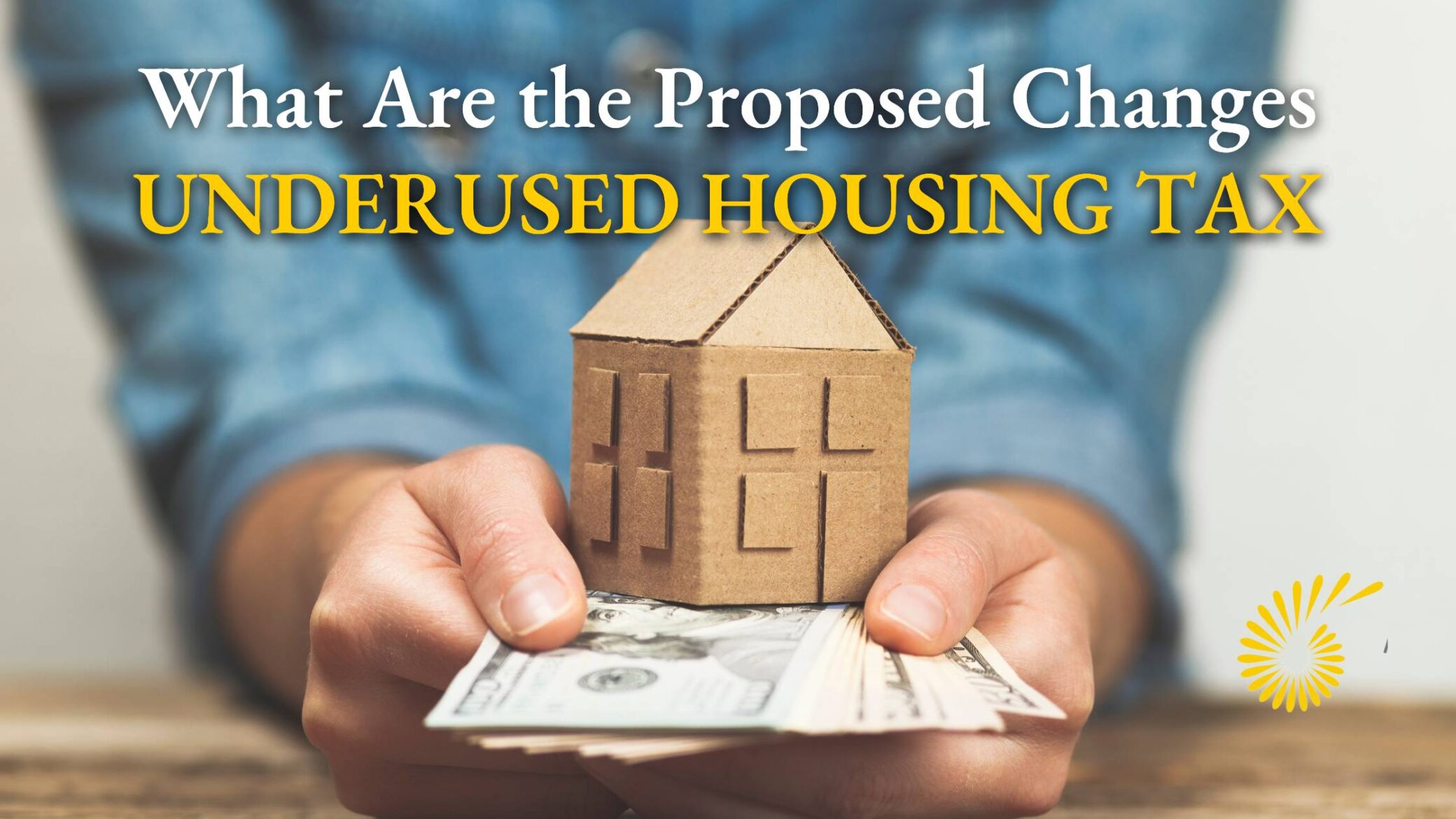What Are the Proposed Changes to the New Underused Housing Tax?
2025-11-15 UPDATE: This measure was cancelled in the 2025 budget bill. Taxpayers are still responsible to file and pay UHT for 2022-2024.
Are you an owner of a Canadian residential property? If so, you may be affected by Canada’s new Underused Housing Tax (“UHT”). Canadian citizens and permanent residents are not subject to the rules, but certain corporations, partnerships and trusts may be required to file a UHT return for 2022 and future years and potentially claim an exemption from the tax.
Click here for a recap how the UHT works.
Why were changes proposed to the UHT?
When the UHT was abruptly introduced to owners of Canadian residential properties, there was very little notice to potential taxpayers. Confusion reigned for both Canadians and non-Canadians that owned residential property in Canada. Much feedback was provided to the federal government’s Department of Finance as well as the Canada Revenue Agency (“CRA”) and in Canada’s Fall Economic Statement (“FES”) released on November 20, 2023, several proposed changes were announced and generally welcomed by stakeholders.
The proposed changes were released to the public for feedback until early January of 2024. We presume that any feedback will be incorporated before the final draft legislation to be examined in more detail by the House of Commons and finally the Senate. Herein, we outline how the currently proposed changes will affect owners of Canadian residential property.
What are the proposed changes to the UHT?
The first proposed change relates to the exclusion of many Canadian corporations, partnerships and trusts, from the definition of “affected owner”. This means that many corporations, partnerships and trusts will not be required to even file a UHT return for 2023 and future calendar reporting years. This is a highly welcomed change since many business structures were forced to file a 2022 UHT return and claim an exemption(s), even though no UHT was payable.
To accomplish this, the definitions of specified Canadian partnerships and trusts were further refined to ensure they are not considered to be “affected owners” and thus not required to file UHT returns for 2023 forward.
Importantly, a new rule was added starting January 1, 2022, whereby an owner of a residential property may hold the property in more than one capacity. For instance, a non-citizen may own Canadian residential property in their capacity as an individual owner/investor and also in their capacity as a trustee of a specified Canadian trust. As a trustee, they would not be an affected person and not required to file a UHT. However, in their capacity as a non-citizen, they would be affected person and required to file a UHT return and pay the tax, subject to any available exemption(s).
Another welcomed change is the reduction of the original minimum penalty amount for each failure to file a UHT return. The proposed changes reduce each infraction to $1,000 for individuals and $2,000 for non-individuals such as partnerships, corporations and trusts. These changes are proposed to be retroactive to January 1, 2022.
Proposed changes to the UHT regulations include a change to the definition of “residential property” to exclude certain residential condominium units that are part of a building with four or more other condominium units if the two following conditions are met:
- The person must also own 90% or more of all the condominium units situated in the same building; and
- 90% of the building’s units must be held for long-term (greater than one month) residential rental purposes.
This proposed rule change is intended to carve out properties that are effectively multi-family apartment complexes where each unit has a separate condominium or strata title. This change is retroactive to December 31, 2022, and effectively excludes such persons and their properties from having to file a UHT return for each unit.
A new condition is added to provide for a UHT exemption for any person that owns or operates a remote work camp for their or certain other persons’ use as a place of lodging or residence. This proposed change will have retroactive effect for the 2023 and subsequent reporting years.
Lastly, the existing anti-avoidance rules have been bolstered under the proposed changes to ensure that transfers of property(ies) between non-arm’s length persons, do not permit the “affected owner(s)” from attempting to avoid payment of the tax. These rules are similar to those in other federal tax regimes to prevent evasion or avoidance of the tax.
When will the new UHT rules come into effect?
We will advise our newsletter subscribers affected by this change, once the proposed changes receive Royal Assent, which is hopefully well prior to the 2023 (and extended 2022 reporting year’s deadline) return filing deadline of April 30, 2024. It should be noted, that last week the CRA updated the definition of “excluded owner” on form UHT-2900, so they appear to be accepting returns based on the proposed legislation.
Based on the existing rules, you can also refer to the CRA’s new Online UHT self-assessment tool, in order to understand if you and your property(ies) are affected by the UHT and whether you need to file a return and if so, pay the tax or be eligible to claim an exemption from the tax. Feel free to check out our recent article on the tool, which will presumably be updated in due course, to reflect the proposed changes to the UHT legislation.
At Achen Henderson, we can help you to take the complexity out of the current and future UHT rules as well as various other sales and indirect taxes affecting long-term or even short-term rental Canadian residential property ownership and operation.
Ready to get a head start on 2024 taxes or need help with 2023?
GET IN TOUCH

